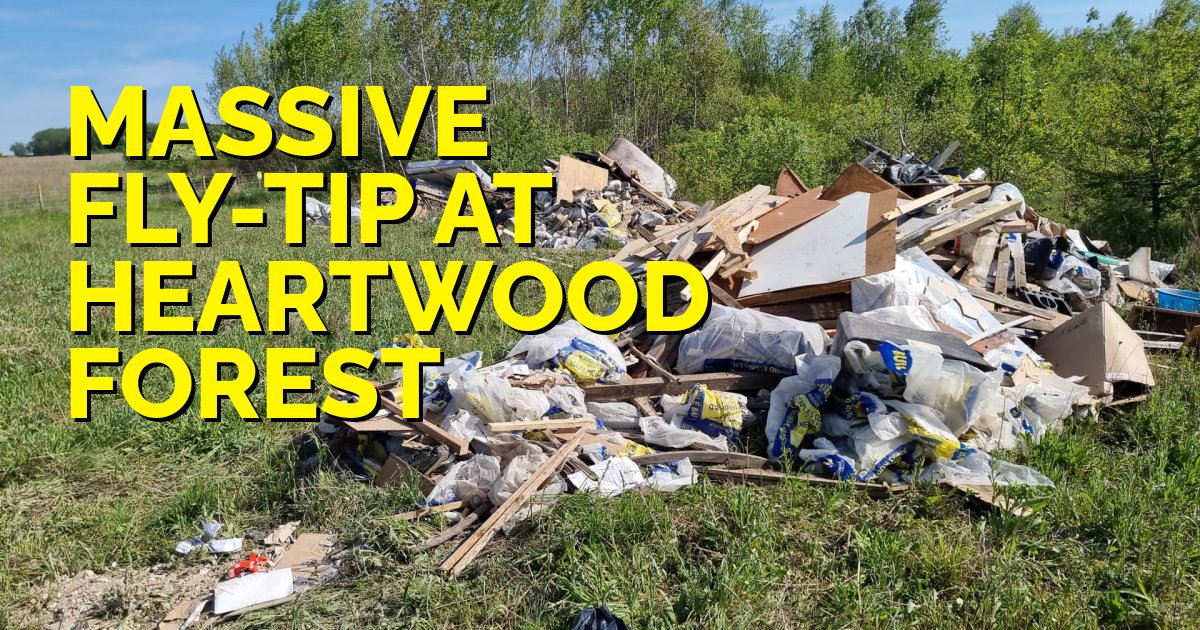How SHERRIFF Helped with Our Fly-Tip Removal Service
Fly-tipping remains one of the most pressing environmental issues facing London and the South East of England today. From rural lanes in Hertfordshire to green spaces on the edge of Greater London, the illegal dumping of waste blights communities, damages natural habitats, and places an immense financial burden on local authorities, landowners, and charitable organisations.
At SHERRIFF, we’re committed to being part of the solution, offering responsive, professional waste clearance services and working in partnership with those affected to help restore sites to their original condition.
SHERRIFF in Action: Responding to Fly-Tipping at Heartwood Forest
At SHERRIFF, we have seen first-hand the disruption and damage caused by fly-tipping. One recent callout took our team to Heartwood Forest near St Albans, where a significant quantity of illegally dumped waste had been left on protected land.
Working in collaboration with the Woodland Trust, the charity responsible for maintaining the site, SHERRIFF deployed roll-on/roll-off skips and a specialist clearance team to tackle the fly-tip removal.
The removal took two full days, during which our team safely and responsibly loaded and removed all waste materials. The cost to the charity, both financially and in terms of volunteer hours lost, ran into thousands of pounds.
We were proud to help restore this precious woodland to its natural state, but it served as a stark reminder of the ongoing challenges faced by landowners and environmental groups.
The Scale of the Problem: Official Data on Fly-Tipping
According to the Department for Environment, Food & Rural Affairs (Defra), local authorities in England dealt with over 1.08 million fly-tipping incidents in 2022/23. Of these, more than 360,000 incidents occurred in London, accounting for one-third of all cases nationally, while the South East recorded nearly 90,000 incidents, placing it among the most affected regions outside the capital.
The most common locations for fly-tipping are highways (38%), followed by footpaths and bridleways (20%), and council land (12%). However, private landowners, including farmers, charities, and forestry organisations, often bear the brunt of the cost, as fly-tipping on private land is not the responsibility of local councils to clear.
Fly-tipping Statistics 2023-2024
The Financial Burden of Illegal Dumping
The financial cost of dealing with fly-tipping is substantial. In the 2022/23 period alone, local authorities in London and the South East spent more than £13 million on clearing fly-tipped waste, according to Defra. This figure does not include the cost borne by private landowners, who often have limited recourse to compensation.
When charities or environmental organisations are forced to redirect funds to deal with illegal waste, the knock-on effects can be far-reaching, impacting conservation efforts, educational outreach, and public engagement programmes.
Protecting Nature: The Environmental Cost of Fly-Tipping
The environmental impact of fly-tipping can be both immediate and long-lasting, posing serious risks to ecosystems, wildlife, and public health across London and the Southeast.
Illegally dumped waste often contains hazardous materials, such as asbestos, chemicals, or electrical goods, which can leach into soil and watercourses, contaminating natural habitats and threatening biodiversity. In green spaces, farmland, and woodland areas, fly-tipped rubbish can disrupt ecosystems, endanger livestock, and introduce pollutants that take years to break down.
Moreover, the presence of dumped waste can encourage further illegal activity, creating a cycle of degradation that undermines efforts to protect and preserve our shared environment. At SHERRIFF, we recognise that timely and professional clearance is not just about tidying up, it’s about safeguarding nature, supporting land stewardship, and maintaining the health of the landscapes we all depend on.
Why Do People Fly-Tip?
Understanding the reasons behind fly-tipping is key to tackling the issue effectively. Defra’s analysis and surveys conducted by Keep Britain Tidy indicate that fly-tipping is often motivated by cost avoidance, with individuals or rogue traders unwilling to pay for legal waste disposal.
A lack of awareness around legal obligations, limited access to household waste recycling centres, and the mistaken belief that small-scale dumping is harmless also contribute to the problem.
In some cases, organised crime groups are involved, offering low-cost waste clearance services online and then illegally dumping the collected material. Tackling these operations requires enforcement, public education, and accessible waste disposal options.
Partnering with Landowners and Authorities
Whether you're a local council, highways agency, private landowner, or farmer, SHERRIFF is ready to assist with a responsive and dependable service for the clearance of fly-tipped waste. We are equipped to handle incidents of all sizes and can mobilise rapidly across London and the South East.
Our teams are fully trained in safe waste handling and disposal, and we ensure all materials are processed through legitimate and environmentally responsible channels.
We also understand the importance of discretion, efficiency, and site preservation, especially when dealing with sensitive or protected locations. Our experience allows us to adapt our approach to meet the specific requirements of each site and client.
Let’s Work Together to Keep Our Environment Clean
Fly-tipping affects us all, damaging our green spaces, threatening wildlife, and draining valuable resources. If you’ve been affected by illegal dumping or would like to discuss how SHERRIFF can help you manage waste on your land or property, we’d be happy to talk.
Get in touch with SHERRIFF today to arrange a site visit, request a quote, or learn more about our fly-tipping clearance services. Together, we can help keep London and the Southeast cleaner, greener, and free from the blight of fly-tipping.

